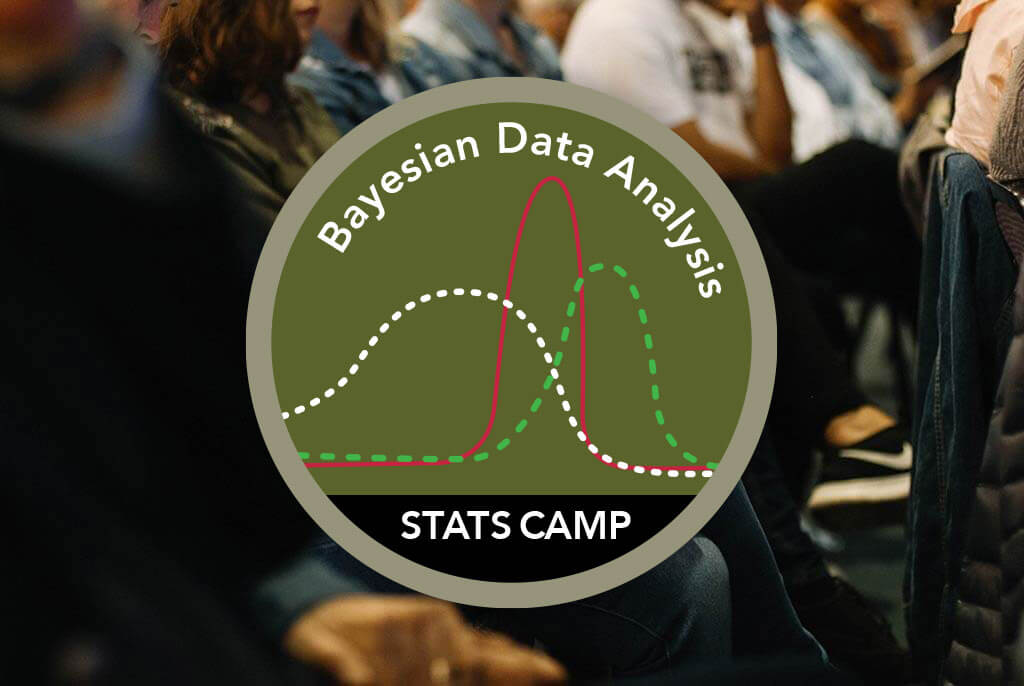LIVESTREAM and/or ASYNCHRONOUS – 5-day Bayesian Data Analysis Statistics Course
Course Overview:
Unlock the Power of Bayesian Statistics: Join Our Intensive Five-Day Bayesian Course
Are you ready to take your statistical skills to the next level? Look no further than our comprehensive five-day Bayesian statistics course. As one of our most popular training workshops each year, this course offers advanced students, faculty, and researchers from all disciplines a unique opportunity to dive deep into Bayesian data analysis with expert instructors Mauricio Garnier-Villarreal, Ph.D. and Esteban Montenegro-Montenegro, Ph.D.
Propel Your Career Forward:
– Academic Research: Publish groundbreaking studies and contribute to cutting-edge research in your field.
– Market Research: Gain insights into consumer behavior, market trends, and product performance.
– Healthcare: Analyze patient outcomes, healthcare delivery systems, and treatment effectiveness.
– Public Policy: Address societal challenges through evidence-based recommendations.
– Environmental Science: Develop strategies for sustainability and conservation efforts.
Skills Gained:
– Advanced understanding of Bayesian statistics principles
– Proficiency in Bayesian data analysis techniques
– Ability to apply Bayesian methods to complex research problems
– Skills in model estimation, validation, and interpretation
– Expertise in handling and interpreting Bayesian output
– Competence in using statistical software for Bayesian analysis
– Familiarity with advanced topics such as hierarchical modeling and Markov chain Monte Carlo (MCMC) methods
Seminar Topics:
- The rich information provided by Bayesian analysis and how it differs from traditional (Frequentist) statistical analysis
- The concepts of Bayesian reasoning along with the easy math and intuitions for Bayes’ rule
- The concepts and hands-on use of modern algorithms (“Markov chain Monte Carlo”) that achieve Bayesian analysis for realistic applications
- How to use the free software R for Bayesian analysis.
- An extensive array of applications, including comparison of two groups, ANOVA-like designs, linear regression, logistic regression, multilevel regression, and growth models, count regression, robust regression, regularization and polynomials, and missing data treatments in Bayesian inference.
Bayesian Statistics Seminar Description:
Many fields of science are transitioning from null hypothesis significance testing (NHST) to Bayesian Data Analysis Solutions. Bayesian analysis provides rich information about the relative credibilities of all candidate parameter values for any descriptive model of the data, without reference to p values. Bayesian analysis applies flexibly and seamlessly to complex hierarchical models and realistic data structures, including small samples, large samples, unbalanced designs, missing data, censored data, outliers, etc. Bayesian analysis software is flexible and can be used for a wide variety of data-analytic models. This seminar shows you how to do Bayesian data analysis, hands on.
Instructors: Mauricio Garnier Villarreal, Ph.D.

Researcher from Costa Rica, working at the Sociology department from the Vrije Universiteit Amsterdam (VU). Overall my work is about development and test of data analysis methods, and their applications in a variety of applied fields.
I am passionate about open source, and collaborative research.
Esteban Montenegro Montenegro, Ph.D.

I’m an Assistant Professor at the Psychology and Child Development Department. I focus my research ideas in problems related to quantitative psychology. I’m always doing research on latent variable modeling. I applied my passion for statistics in topics related to healthy aging and dementia.
Bayesian Statistics Course Includes:
Materials, downloads, recorded course video viewable for up to one year.


